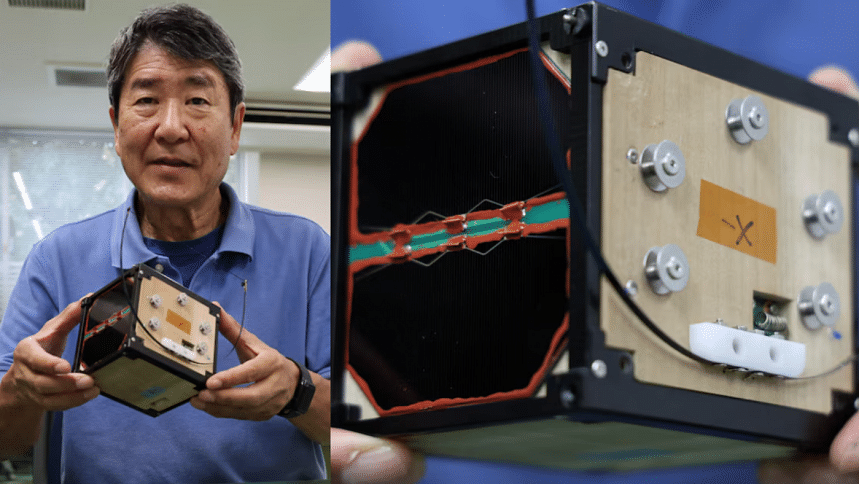World's first wooden satellite launched into space

Japanese researchers have successfully launched the world's first wooden satellite, named LignoSat, into space. The satellite was sent on Tuesday aboard a SpaceX mission to the International Space Station (ISS) to explore the use of timber in future lunar and Mars missions, states a report by Reuters.
Developed by a collaboration between Kyoto University and homebuilder Sumitomo Forestry, LignoSat is a palm-sized satellite that aims to demonstrate the viability of wood as a renewable and sustainable material for use in space. The name 'LignoSat' is derived from the Latin word for 'wood', reflecting its unique design and purpose.
Why wood?
Astronaut Takao Doi, who has flown on the Space Shuttle and is now a researcher at Kyoto University, emphasised the potential of timber in building sustainable habitats in space. "With timber, a material we can produce ourselves, we will be able to construct homes and create workplaces in space for the long term," he explained, as stated in the Reuters report.
The decision to create a wooden satellite stems from the idea that if wooden aeroplanes were feasible in the early 1900s, then wooden satellites should be possible too, adds the report. Koji Murata, a professor of forest science at Kyoto University, noted that wood could actually be more durable in the harsh conditions of space due to the absence of water and oxygen, which typically cause rot and combustion on Earth.
One of the significant advantages of using wooden satellites lies in their environmental impact. Traditional metal satellites can create aluminium oxide particles during re-entry into the Earth's atmosphere, contributing to space debris. In contrast, wooden satellites like LignoSat would burn up completely upon re-entry, leading to less pollution and a smaller ecological footprint.
What will it do?
LignoSat is constructed from 'honoki', a type of magnolia native to Japan, chosen after extensive testing aboard the ISS for its suitability in space. Remarkably, the satellite was crafted using traditional Japanese techniques that eliminate the need for screws or glue.
Once in orbit, LignoSat is set to remain for six months, during which it will collect data on how wood withstands the extreme conditions of space, including temperature fluctuations that range from -100 to 100 degrees Celsius every 45 minutes, states the report.
Additionally, the satellite will assess wood's potential to shield sensitive electronic components from space radiation, offering insights that could be applied to the construction of data centres and other structures.
The success of LignoSat could pave the way for future wooden satellites and habitats, presenting a sustainable alternative for humanity's ventures beyond Earth.

 For all latest news, follow The Daily Star's Google News channel.
For all latest news, follow The Daily Star's Google News channel. 




Comments